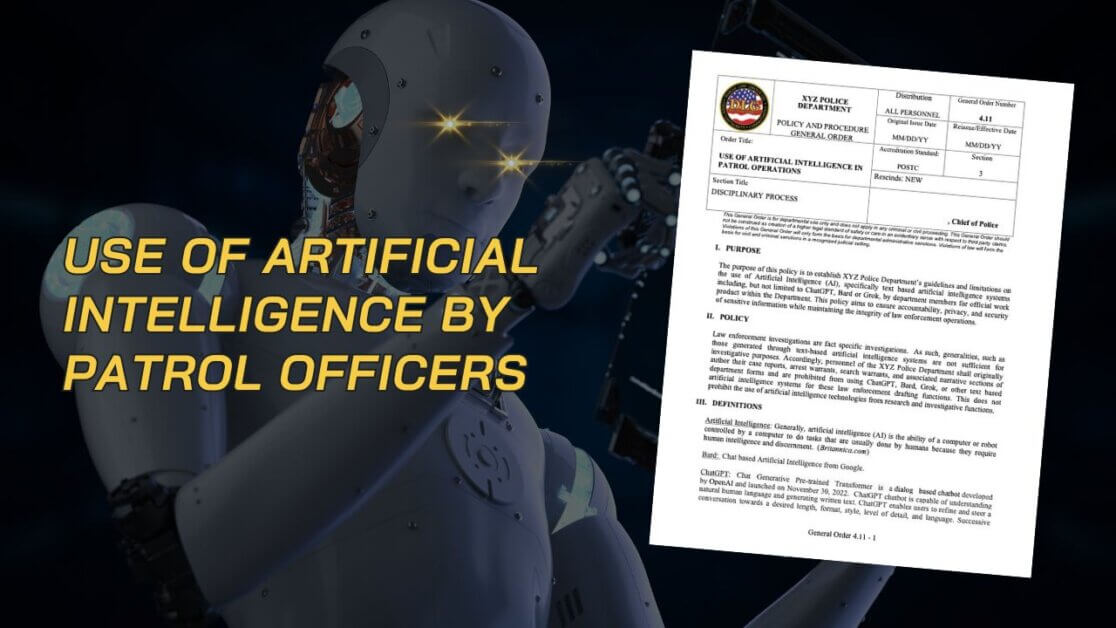Today’s case comes to us from the 9th Circuit and looks at issues surrounding Automated License Plate Readers (ALPR) and whether officers can access information from private databases populated by ALPR entries. The 9th Circuit describes the Vigilant Solutions LEARN (Law Enforcement Archival Reporting Network) program as a searchable database of entries from private and public sources that allow law enforcement subscribers to enter a license plate and determine if the plate has been recorded by an LPR and the location where the plate was recorded. It was estimated that the database contained over 6 billion entries in March 2019.
As we have seen in a number of appellate court cases and SCOTUS cases over the last several years, technology continues to move forward, and how law enforcement utilizes these technologies will continue to be a point of contention for law enforcement and organizations such as the ACLU. The main SCOTUS case that Yang tried to use in his defense was Carpenter v. United States. In that case, SCOTUS questioned if the warrantless search and seizure of cell phone records, which include the location and movements of cell phone users, violates the Fourth Amendment. Officers sought, and received, cell phone site information that allowed them to pinpoint the location of the defendant during several bank robberies. The Court likened the information gleaned through the cell phone records to that information obtained through the use of GPS units attached to suspect vehicles. Under these circumstances, officers are required to obtain a warrant to receive the information.
So, does searching a license plate on a stolen rental car correlate to using a cell phone or a GPS to track a suspect’s location? Let’s see what the 9th Circuit had to say.
Facts
The defendant, Jay Yang, was observed on surveillance cameras driving a GMC Yukon and stealing mail out of the collection boxes in Las Vegas, Nevada. The postal inspector determined the vehicle was leased from a rental company and called the company to learn the vehicle was six days overdue. Yang rented the vehicle on April 2nd using a stolen credit card and the vehicle was due back on April 5th. Company officials also advised the inspector that they had attempted to access the vehicle’s GPS system to remotely disable the car, but had been unsuccessful. Upon further inspection it was learned that the GPS system had been disabled and the vehicle was no longer at the address documented on the rental agreement.
With no investigative options left, Inspector Steele entered the vehicle plate into the Vigilant Solutions LEARN database. As I stated earlier, this database collects information provided by law enforcement and private LPR systems across the country. The entry came back with a record that the vehicle had been photographed by a private repossession vehicle on April 5, 2016 just before midnight. Inspector Steele proceeded to the gated community where the plate was recorded and located the vehicle and Yang. After additional surveillance Steele obtained a warrant to search Yang’s residence. A subsequent search revealed a number of stolen mail packages, tools used to steal packages from the collection boxes and a pistol that Yang claimed he owned. Yang confessed that he had stolen the mail packages.
At trial Yang moved to have the evidence and his statements suppressed on the basis that the information supporting the warrant was illegally obtained through the database. Yang claimed that accessing the LPR technology without a warrant violated his right to privacy under the SCOTUS decision in Carpenter v. United States. The trial court denied Yang’s motion on multiple grounds finding that the information was obtained by random observations on a public street and not the result of an improper government trespass. Yang then entered a conditional guilty plea and filed this appeal.
9th Circuit Findings
The court first reviewed whether Yang had a reasonable expectation of privacy in the historical location data. The court noted that while “the mere expiration of the rental period does not automatically end a lessee’s expectation of privacy”, Yang failed to establish that he had a reasonable expectation of privacy under the specific facts of this case.
First, Yang did not establish that the rental company had a policy or practice of allowing lessees to keep the vehicle after the rental period expired. In fact, the rental contract language specifically stated that the vehicle would be reported as stolen if it was not returned on the return date. In addition, the rental company’s attempts to disable the vehicle put Yang on notice that the rental agreement would not be extended.
Yang made a further argument that while the database query was made after the date the vehicle was scheduled to be returned, the recording taken by the private repossession truck was taken at 11:24 PM on April 5th. Since the recording was taken before midnight on the 5th, Yang retained a reasonable expectation of privacy. The court disagreed, noting that the vehicle was due to be returned at 10:48 AM and the business had closed for the day well before the recording was made.
Takeaways
The good news here is the search and conviction were affirmed based on the fact that Yang no longer enjoyed a reasonable expectation of privacy once the vehicle was past the return time. The bad news is that the court did not address the 4th Amendment interests that may be implicated by the warrantless use of the LPR database. The court focused on the fact that it was a “stolen” rental car and not on the implications of the LPR search. So, the important takeaway here is that the biggest reason that this search was allowed was because the rental car was past due, not because it was the officers’ last investigative tool left.
United States v. Yang, No. 18-10341 (9th Cir. 2020)



